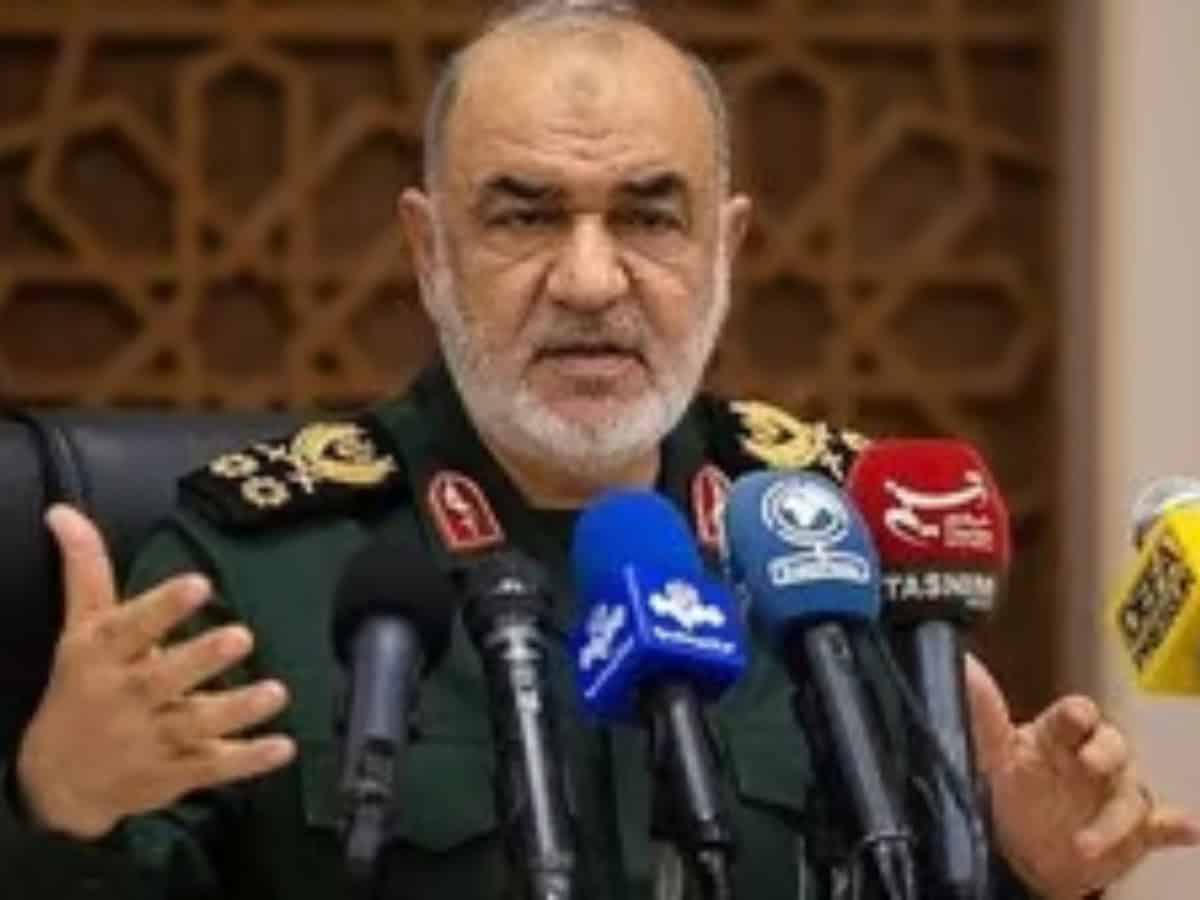
A top Iranian military commander has said his country had, some time ago, hit 12 Israeli vessels north of the Indian Ocean and elsewhere in response to Israel’s attacks on 14 Iranian ships, according to state media.
Hossein Salami, chief commander of Iran’s Islamic Revolution Guards Corps (IRGC), made the remarks on Saturday during a meeting in the capital Tehran between Iranian President Masoud Pezeshkian and commanders of the Khatam al-Anbiya Construction Headquarters, an Iranian firm controlled by the IRGC.
He was detailing a maritime battle between Iran and Israel that occurred sometime after the reimposition of US sanctions on Tehran in 2018, though he did not specify the exact dates of the battle or related events, Xinhua news agency reported.
According to Salami, Israel hit 14 Iranian ships to disrupt Iran’s oil exports.
“Initially, we did not realise who or which country was targeting the ships, but we eventually found out that it was Israel that had done it in a secretive and vague manner.”
“North of the Indian Ocean and in different places, we hit 12 Israeli ships. After hitting the fifth vessel, they raised their hands in surrender and said they would cease the war between the ships,” he said.
“When we struck (captured) the fifth Israeli ship, they raised their hands (in surrender) and agreed to cease the naval confrontation,” Salami said during a visit to the Khatam al-Anbiya Construction Headquarters.
“They targeted 14 of our ships to prevent our oil from being exported. We didn’t know who was behind it at first because it was done so covertly, but we eventually figured it out: the Zionist regime. We targeted 12 of their ships, and when we had the fifth, they raised their hands (in surrender) and declared the naval confrontation over.”
He further said, “The British seized our ship in Gibraltar, and we seized the Stena Impero ship in exchange, prompting their surrender. They seized two of our ships in Greece, we took two of theirs, and they eventually surrendered.”
General Salami reflected on the past six years, marked by sanctions, the Covid-19 pandemic, and political isolation attempts.
“Our enemy placed us at the crossroads of sanctions, the Covid-19 pandemic, (former US President Donald) Trump (who was no less harmful than Covid-19), the threat of military operations, and pressure for political isolation,” Salami said, recounting challenges such as the assassination of Lietenant General Qassem Soleimani and the impact of economic sanctions.
“They tried to politically isolate us. We needed to create deterrence against these threats in multiple directions. First, we needed to secure the shipping lanes. When the Americans attempted to seize one of our ships, our forces prevented it, and the Americans were left humiliated. Following this, the enforcement of sanctions began to deteriorate,” he added.
Additionally, he praised the IRGC’s success in countering extremist threats abroad and safeguarding Iranian oil tankers, noting that American threats failed to materialise after the IRGC simulated an operation to capture a US tanker.
“We succeeded in closing off all the paths the enemy had opened against us, and today the safest shipping routes are those used by Iranian ships. The Americans threatened to seize two of our oil tankers as they headed to Venezuela. I went out with General Tangsiri and simulated an operation to capture an American tanker, which we announced over the radio. When the Americans saw this, our tankers arrived safely,” he said.
